
Is Writing an MUN Position Paper Easy or Complicated?
One of the most important preparation stages for students taking part in Model United Nations (MUN) conferences involves writing MUN position paper. These documents provide delegates' guidance during committee sessions and state a nation's position on the agenda items. But even the most experienced delegates sometimes find it difficult to write a well-researched and compelling position paper; the process can be both simple and complex. Let us investigate the components that make this work both simple and difficult.
The Simple Aspects of Writing MUN Position Paper
A Model United Nations position paper fundamentally has a certain structure that is sometimes rather easy to understand. Usually, it consists of an introduction outlining the significance of the subject, a body outlining the national policies and suggested remedies, and a conclusion restating the main ideas. Delegates can easily follow this format, which also helps to better organise the report overall.
Furthermore, the profusion of resources accessible can help with the research step. Global issues are well covered in official UN publications, scholarly journals, and reports from reliable organisations. Delegates who are adept researchers and can identify trustworthy sources will have easy access to the information they need for their position papers.
Complications of Writing MUN Position Paper
Writing MUN position paper might be complicated by several major obstacles despite these simple components.
- Depth of Understanding: Themes on MUN agendas frequently centre on difficult global problems with nuanced historical backgrounds, many stakeholders, and many approaches. Delegates often find it intimidating to do the necessary in-depth study and critical analysis to fully grasp these subtleties.
- Taking Up a Nation's Point of View: Taking up the point of view of the nation you have been assigned to write a position paper is one of the trickiest parts. Delegates need to be well conversant with the foreign policy, national interests, and past positions of the nation on the agenda items. It can be a fine balance act to articulate these views clearly while yet being objective and advocating.
- Coherence and Persuasion: Although organising the position paper more easily can be achieved by adhering to a structure, creating a compelling storyline throughout is no small task. The delegates have to deftly and persuasively combine a number of components, such as factual data, policy analysis, and suggested remedies.
Finding Balance Between Easy and Complicated
Delegates can use the subsequent techniques to handle the difficulties of writing a MUN position paper:
- Start Early: Give yourself enough time to do thorough investigation, analysis, and revisions by starting the research and writing process well in advance.
- Master Research Skills: Sharpen your ability to find and assess reliable sources, combine data, and take out the most pertinent ideas for your work.
- Seek Advice: For comments and direction during the writing process, speak with seasoned MUN mentors, delegates, or faculty members.
- Learn Critical Thinking: Develop your ability to analyse complicated problems, pinpoint their root causes, and put up well-founded national solutions.
- Edit and Refine: Go through the paper very carefully, checking it for accuracy, coherence, and clarity as well as formatting rules.
Delegates can benefit as well from working together with peers or team members. Discussions, research results sharing, and work reviews amongst each other might yield insightful information and viewpoints that eventually improve the position paper.
Writing MUN position paper is a learning experience that goes much beyond the finished result. Delegates can acquire vital skills that will help them in their academic and professional endeavours by accepting the difficulties and aggressively looking for growth chances.
Though it might be a difficult task, preparing a Model United Nations position paper is a priceless exercise that gives delegates vital research, writing, and critical thinking abilities. Delegates can negotiate the complexities and create position papers that provide a strong basis for their MUN experience by accepting the dif
Related Blogs
-
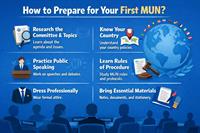
19-Jan-2026 How to Prepare for Your First MUN?
-
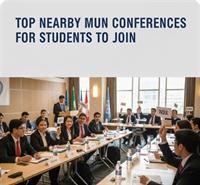
24-Dec-2025 Top Nearby MUN Conferences for Students to Join
-
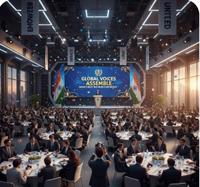
27-Nov-2025 Global Voices Assemble India Next Big MUN Conference
-
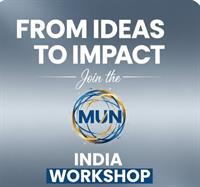
13-Nov-2025 From Ideas to Impact Join the MUN India Workshop
-
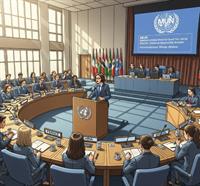
14-Aug-2025 What Is A Conference In MUN?
-
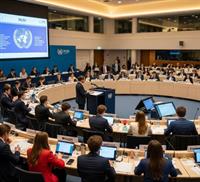
07-Aug-2025 What Does the MUN Do?
-
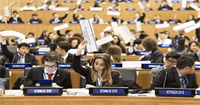
03-Jul-2025 Ways to Research for a Model UN Position Paper
-

28-Mar-2025 What skills do you gain from Model United Nations?
